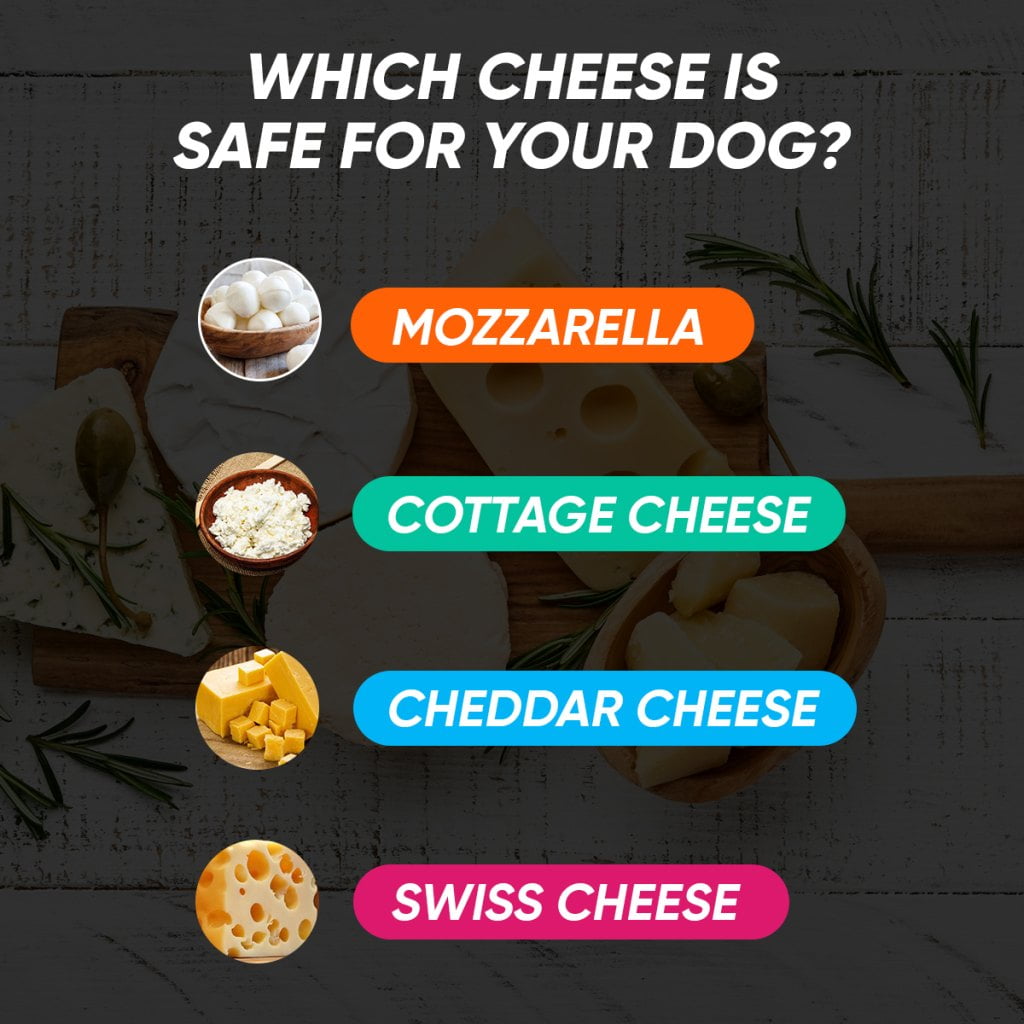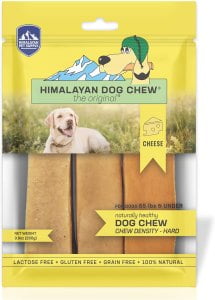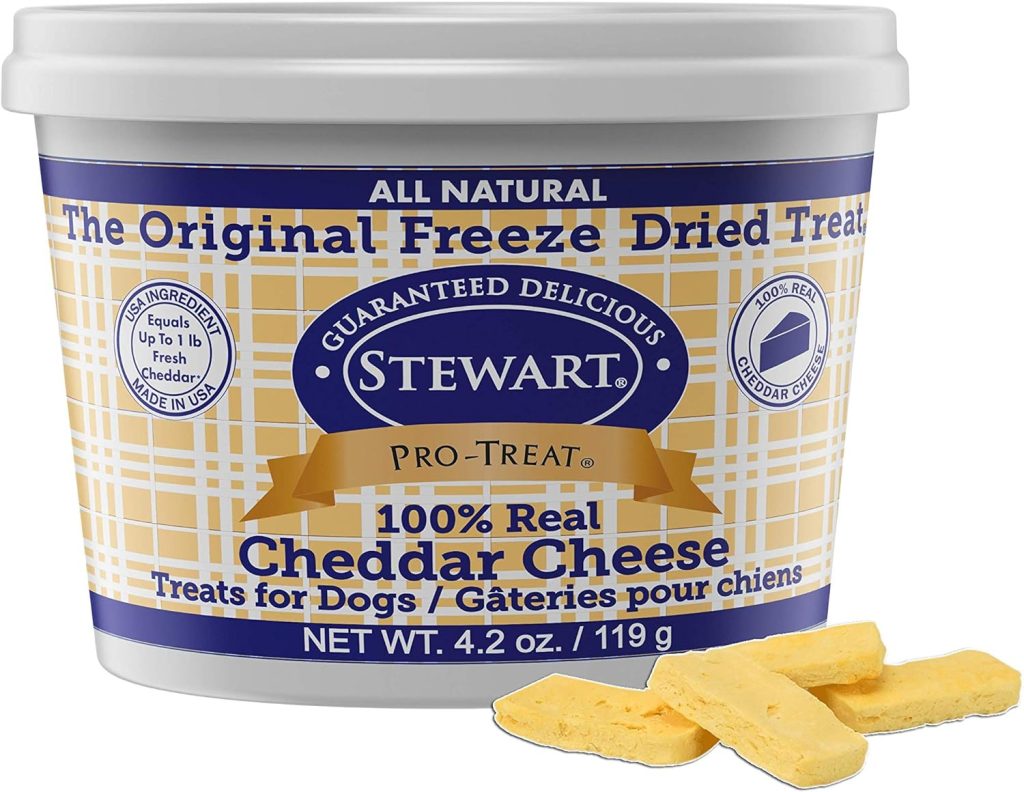Dogs are man’s best friend and they have remarkable senses. One of those senses is the sense of taste. Most of the facts about dogs can be found online, but there are still some facts about them that are not widely known. Dogs seem to love cheese and some of us have been tempted to give our canine friends a bit of cheese. But is cheese good for dogs, Can dogs eat cheese? And if so, which cheese is the best for dogs? This blog will answer those questions and more.
Table of contents
Estimated reading time: 7 minutes
Can Dogs Eat Cheese and Why?
Dogs need cheese and they CAN eat cheese because dogs are just like humans and they can benefit from eating cheese. Dogs can metabolize cheese just fine. If a dog can’t properly process dairy products, then it may have adverse effects from eating cheese. Some dogs with lactose intolerance will react even if a small amount of cheese is consumed.
Is Cheese Good For Pups & Adult Dogs?
Lactose is present in milk and it is a form of sugar. Lactose intolerant adults can have symptoms such as diarrhea. However, puppies that have no choice but to drink unprocessed milk will not have any problems with it. For the level of lactose in dairy products, they synthesize an enzyme that helps in its digestion.
As adult dogs have no need for milk for their growth, they find it hard to digest lactose once they reach adulthood and start eating more solid foods. Not only lactose is difficult to digest in adult dogs, but some are completely allergic to any kind of milk.
What Are The Benefits Of Cheese For Dogs?
When cheese is fed in a moderate amount to your pup it can be very beneficial.

1. Rich in Nutrient
It is a great source of essential nutrients. In addition to being high in protein, cheese is rich in fat and also contains fat-soluble vitamins called retinol (also known as vitamin A) and cobalamin (also called vitamin B-12).
Cheese also contains high amounts of calcium and phosphorus which promotes healthy bones, zinc which is vital for the immune system, and omega-3 fatty acids which are important for all dogs’ fur and skin.
2. Concealer
Dogs love cheese because of its taste, and as it turns out it can be an excellent medium for hiding medications that regular kibble might otherwise hide but which your pooch would try to avoid.
3. Excellent Training Treat
Cheese can make for a powerful dog training tool. Dogs will be compelled to follow your orders to receive the cheese from the trainer. Taking into consideration the nature of your canine companion, it is advisable to offer just a little amount of cheese as an incentive during training sessions.
A good deal of caution needs to go into incentivizing your pet with sausages so that it remains healthy and happy without overindulging in unhealthy elements.
What Are The Risks Of Feeding Cheese To Your Dog?
Dogs, like humans, are susceptible to obesity if they eat high-fat foods for a long time. Too much cheese can leave your pet feeling sluggish and fatigued while causing digestive issues. Additionally, diets that are overly high in fat content can lead to pancreatitis as well.
People and dogs alike can have issues with too much salt. It occurs already quite frequently in humans, so you don’t want to make your dog’s life harder by feeding him foods such as cheese that are either high in sodium or low quality.
Too much sodium can cause an increase in blood pressure this result in organ damage if left untreated. However, if you are giving good dog feed he is getting all the sodium he needs. An ounce per day is recommended for most adult dogs.
Also, pet parents should pay attention to the types of cheeses that they’re feeding their pets. Natural cheeses contain herbs or other additives such as onion, chives, or garlic that can be toxic to dogs.

Which Cheese Is Safe For Your Dog?
The human trend of incorporating cheese regularly into one’s dog’s diet is not always the best option. For better health as well as a lower risk for lactose intolerance if your dog happens to be so predisposed, only high-quality cheese must be used.
Cheese comes in many forms and for your dog, the good news is that it can be a fun snack. Keep in mind that not all cheeses are fit for your puppies. It would be wise to stick to the one that has less sodium content. Here are some examples of cheese to feed your dog:

- Mozzarella
- Cottage cheese
- Cheddar cheese
- Swiss cheese
How Much Cheese to Feed Our Dog?
Cheese is a pretty standard addition to most canines’ diets, but that doesn’t mean it’s always the best option. The thing you’ll want to pay attention to first and foremost is the quality of the cheese that you’re feeding your dog so that you’re both healthy and happy.
We humans can eat cheese all day, every day, but for some reason that applies to dogs too? Dog owners should know better than anyone that dogs really enjoy having a taste of cheese from time to time but there is certainly such a thing as too much of a good thing.
Cheese contains many nutritional benefits we enjoy but too much could lead to the canine not getting enough of what he or she needs in their normal diet, like meat and veggies, etc. So a bite or two is enough for your dog in his daily meals.
Conclusion
Cheese is one of the most popular foods in the world. It’s found in restaurants, grocery stores, and even vending machines. However, for many of us, the idea of feeding cheese to dogs is an odd concept. But dogs can eat cheese. Cheese contains a variety of nutrients and can be healthy for dogs in small quantities.
However, cheese can also be high in fat and salt, so it should be used in moderation. Too much cheese can lead to stomach upset and other health problems. We hope you enjoyed our article on cheese for dogs.

Read More:







